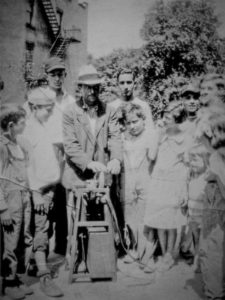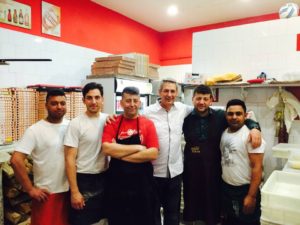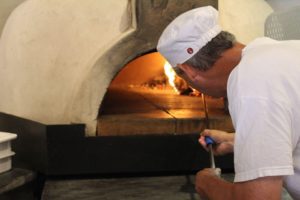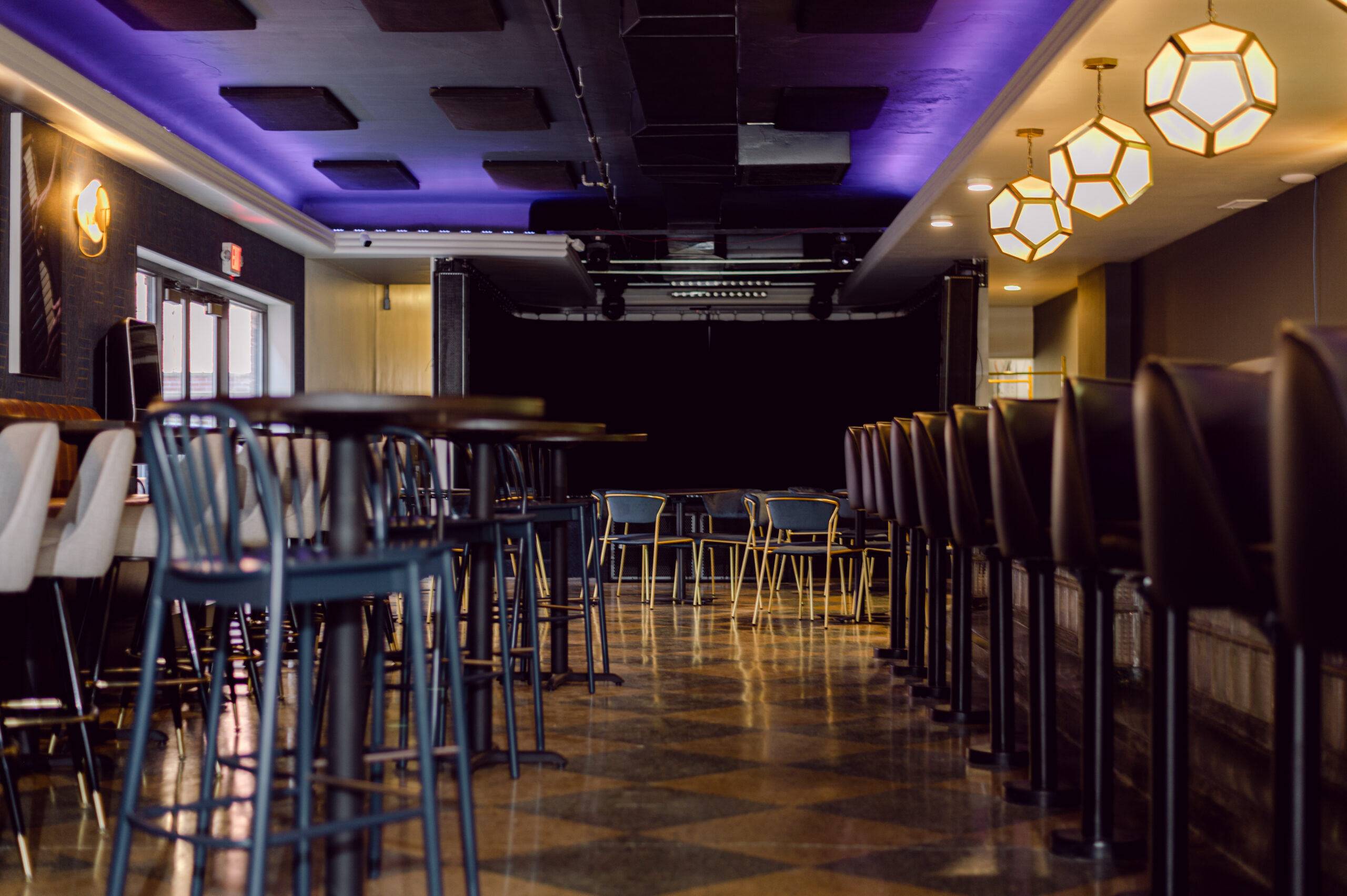At the start of the 1900’s millions of immigrants bid farewell to their countries to find opportunities in America. Make no mistake, though: then, as now, many of these people were turned away in what was often their greatest times of need. However, the immigrants who who did gain entry into our country helped—through their hard work and dedication to bringing their culture to a new land—to shape what it means to be an true American. More than four million of these immigrants were Italians, mostly from Southern Italy, who left their homes to escape poverty in search for a better life. From Ellis Island many of these men and women ended up in Pittsburgh, including Francesco Antonucci, a now-famous name in Pittsburgh’s immigrant lore. Antonucci was an arrotino, or blade-sharpener.

“Francesco came to this country alone,” says Daniel Cardone, Antonucci’s great-grandson and owner of Cardone Pizza Company. “He left behind a wife and two infant children [in Italy], sending for them when he was settled in Pittsburgh and could afford to do so. He then raised 10 children as an arrotino.”
Antonucci was a fixture in the neighborhoods of Pittsburgh, ringing a bell to alert households of his coming, then going door-to-door to sharpen customers’ knives and scissors with a homemade pedal-driven stone which he strapped to his back while walking the streets.
While difficult and physically daunting at times, Antonucci was pleased with the work he did.
“What was amazing to me was that he took such pride in his work,” Cardone says. “He went to work every day with a suit—he had only one and thus wore it everyday—a hat, and a bowtie.”
The image of a man in a hat and bowtie is now the logo for Cardone Pizza Company, a nod to that sense of pride which Cardone now feels for his own work as a pizzaiolo.

Cardone studied in Italy in order to create traditional pizzas in stone ovens. Once considered a dying art at worst or a niche at best, this way of making pizzas is back in vogue as the craft / artisanal scene in Pittsburgh continues to grow. Though big-box stores and chain-restaurants continue to struggle, neighborhoods are increasingly supporting their own small businesses.
“Some of my customers are in neighborhoods such as Homewood, who has the Everyday Cafe, Brighton Heights with the California Coffee Bar, and Friendship, soon to open Friendship Perk n Brew,” Cardone says.

Cardone believes that such a development would have pleased his great-grandfather, who was happy to serve his community. Thinking about this, Cardone suddenly sees a direct line from his work now to that of Antonucci, from the past to the present of Pittsburgh.
“It’s funny,” Cardone says. “I somewhat replaced and carried on my great grandfather’s tradition; I even deliver to the same neighborhoods he did!”













